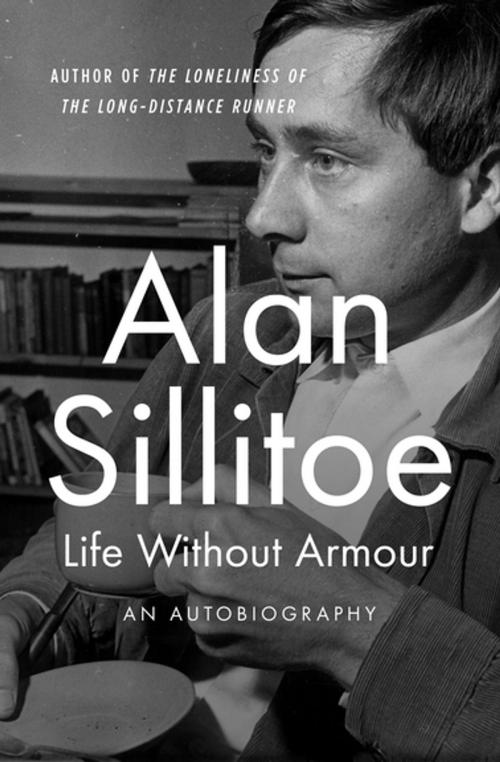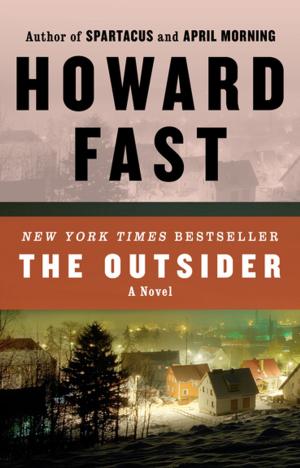Life Without Armour
An Autobiography
Biography & Memoir, Literary, Nonfiction, Family & Relationships| Author: | Alan Sillitoe | ISBN: | 9781504035019 |
| Publisher: | Open Road Media | Publication: | July 12, 2016 |
| Imprint: | Open Road Media | Language: | English |
| Author: | Alan Sillitoe |
| ISBN: | 9781504035019 |
| Publisher: | Open Road Media |
| Publication: | July 12, 2016 |
| Imprint: | Open Road Media |
| Language: | English |
A candid and surprising memoir of the early life of one of England’s most acclaimed and enduring post-WWII writers.
Born in 1928 into a poverty-stricken family in working-class Nottingham, bestselling British novelist Alan Sillitoe’s childhood was marked by his father’s unpredictable and violent rage, as well as a near-certain condemnation to a life of labor on an assembly line. His family relocated frequently to avoid rent collectors, trading in one bug-infested hovel for another. Though intelligent and curious, the young author-to-be failed his grammar school entrance exams, and it seemed he was destined for work in a factory. The onset of Sillitoe’s teenage years, however, coincided with the advance of Hitler into Russia, and the war offered a chance for the boy to seek out a different fate.
At the age of fourteen, Sillitoe used a fake ID to enroll in the Air Training Corps and went on to join the Ministry of Aircraft Production as an air traffic control assistant. He dreamed of becoming a pilot, but the war ended just after he qualified for training and he was instead shipped off to the Malayan jungle during the Communist insurgency as a radio operator for the Royal Air Force (RAF). After two years of living from one wireless watch to the next—taking in bearings and atmospherics though the radio, and exploring dangerous and primal landscapes by foot—Sillitoe finally returned to a prospectless postwar England and was diagnosed with tuberculosis. But this curse soon became a blessing: In the RAF hospital, Sillitoe began to read—everything from Kant to Descartes to Bernard Shaw—and he decided to become a writer.
Already a veteran on an RAF disability pension at the age of twenty-one, Sillitoe began writing full-time, neither his physical challenges nor his numerous rejections from publishers deterring him in the least. He joined the Nottingham Writers’ Club, and his short stories began to achieve some minor local success. Soon after, a chance meeting with the American poet Ruth Fainlight led to full-blown love, and the two set off for France eager to live in a bucolic setting where they could dedicate all of their time to writing.
Circumstance and favorable exchange rates then led the couple to Spain where Sillitoe continued his literary pursuits, met many artists and writers, had run-ins with gypsies, and even underwent police interrogations. Four unpublished novels later—and after nearly a decade of honing his craft—Sillitoe finally found staggering success in his working-class novel Saturday Night and Sunday Morning and his collection of short stories The Loneliness of the Long-Distance Runner.
Written with Sillitoe’s signature simplicity, this in-depth autobiography not only gives insight into the formative years and mental maturation of one of Britain’s most influential writers, but also tells a great story of an underprivileged man who, with perseverance, made the most of his particular fate.
A candid and surprising memoir of the early life of one of England’s most acclaimed and enduring post-WWII writers.
Born in 1928 into a poverty-stricken family in working-class Nottingham, bestselling British novelist Alan Sillitoe’s childhood was marked by his father’s unpredictable and violent rage, as well as a near-certain condemnation to a life of labor on an assembly line. His family relocated frequently to avoid rent collectors, trading in one bug-infested hovel for another. Though intelligent and curious, the young author-to-be failed his grammar school entrance exams, and it seemed he was destined for work in a factory. The onset of Sillitoe’s teenage years, however, coincided with the advance of Hitler into Russia, and the war offered a chance for the boy to seek out a different fate.
At the age of fourteen, Sillitoe used a fake ID to enroll in the Air Training Corps and went on to join the Ministry of Aircraft Production as an air traffic control assistant. He dreamed of becoming a pilot, but the war ended just after he qualified for training and he was instead shipped off to the Malayan jungle during the Communist insurgency as a radio operator for the Royal Air Force (RAF). After two years of living from one wireless watch to the next—taking in bearings and atmospherics though the radio, and exploring dangerous and primal landscapes by foot—Sillitoe finally returned to a prospectless postwar England and was diagnosed with tuberculosis. But this curse soon became a blessing: In the RAF hospital, Sillitoe began to read—everything from Kant to Descartes to Bernard Shaw—and he decided to become a writer.
Already a veteran on an RAF disability pension at the age of twenty-one, Sillitoe began writing full-time, neither his physical challenges nor his numerous rejections from publishers deterring him in the least. He joined the Nottingham Writers’ Club, and his short stories began to achieve some minor local success. Soon after, a chance meeting with the American poet Ruth Fainlight led to full-blown love, and the two set off for France eager to live in a bucolic setting where they could dedicate all of their time to writing.
Circumstance and favorable exchange rates then led the couple to Spain where Sillitoe continued his literary pursuits, met many artists and writers, had run-ins with gypsies, and even underwent police interrogations. Four unpublished novels later—and after nearly a decade of honing his craft—Sillitoe finally found staggering success in his working-class novel Saturday Night and Sunday Morning and his collection of short stories The Loneliness of the Long-Distance Runner.
Written with Sillitoe’s signature simplicity, this in-depth autobiography not only gives insight into the formative years and mental maturation of one of Britain’s most influential writers, but also tells a great story of an underprivileged man who, with perseverance, made the most of his particular fate.















